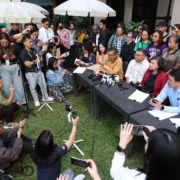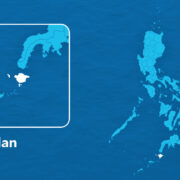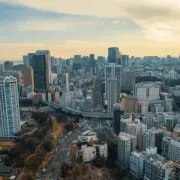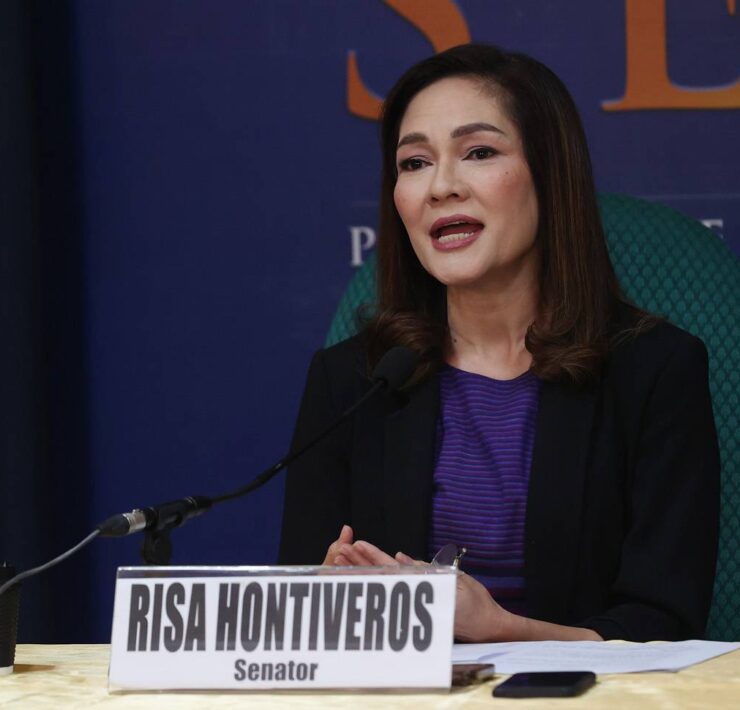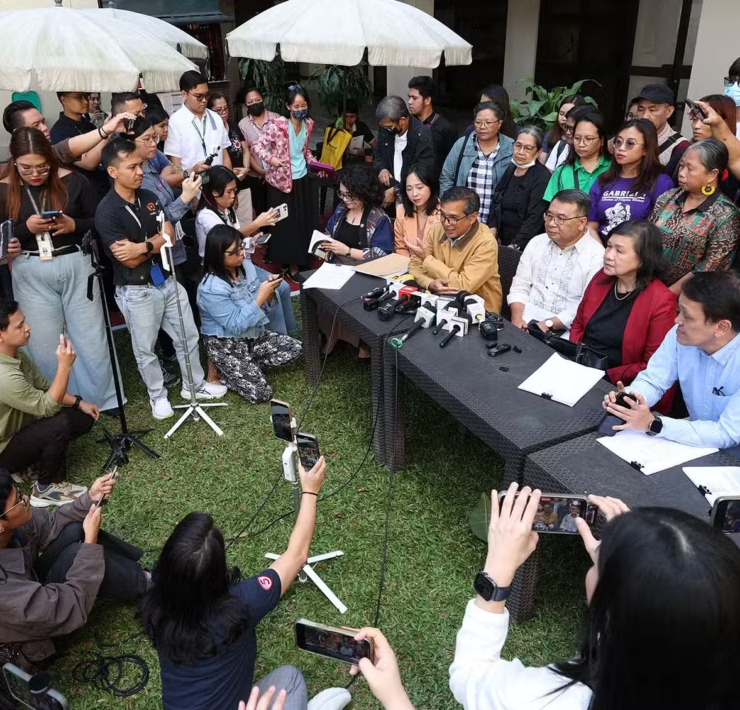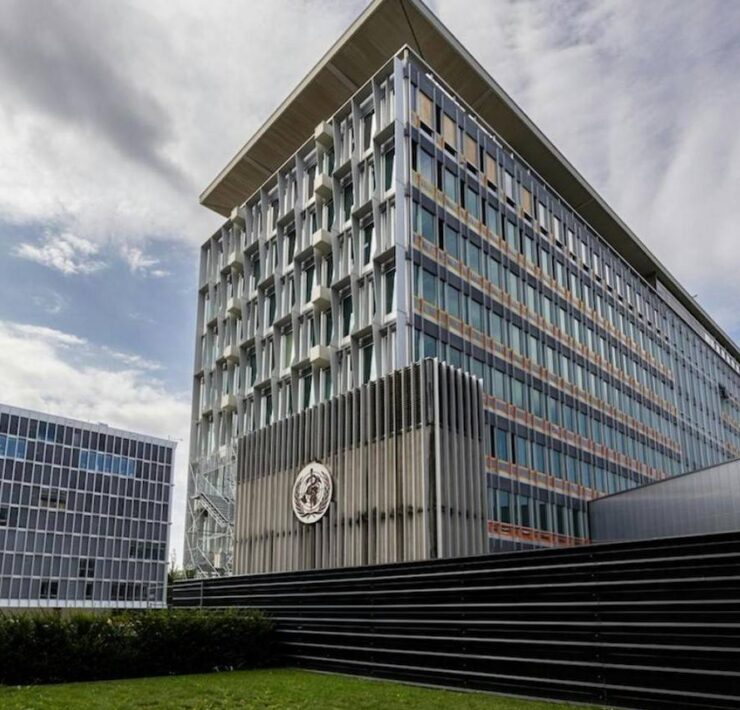At least 39 dead in Bangladesh unrest
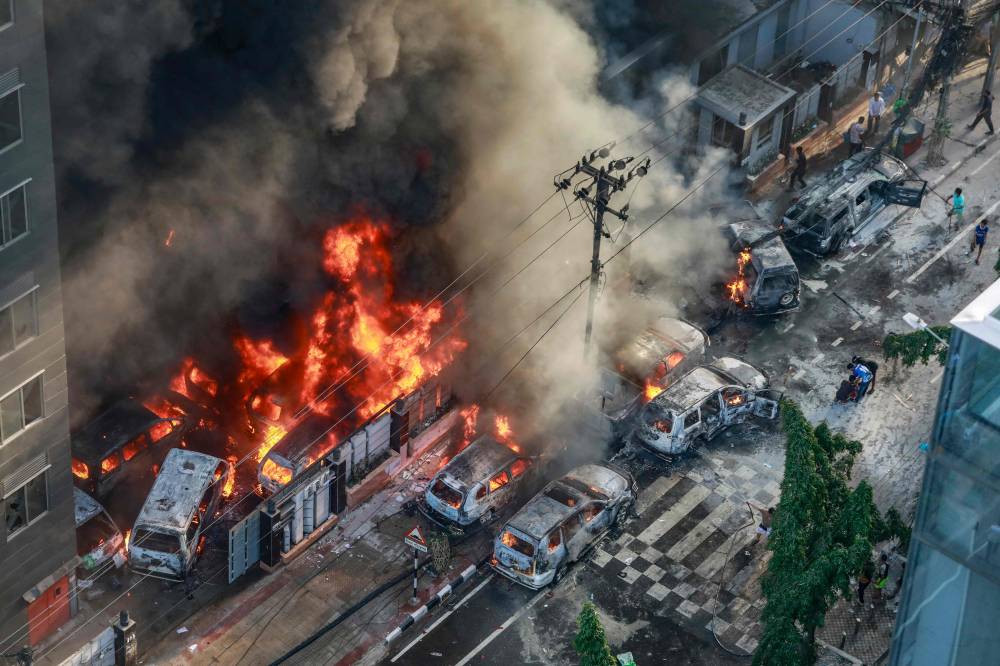
DHAKA—Bangladesh woke on Friday to survey destruction left by the deadliest day of ongoing student protests so far, which saw government buildings torched by demonstrators and a nationwide internet blackout put into effect.
This week’s unrest has killed at least 39 people including 32 on Thursday, with the toll expected to rise further after reports of clashes in nearly half of the country’s 64 districts.
Police said protesters had torched, vandalized and carried out “destructive activities” on numerous police and government offices.
Among them was the Dhaka headquarters of state broadcaster Bangladesh Television, which remains offline after hundreds of incensed students stormed the premises and set fire to a building.
At least 26 districts around the country reported clashes on Thursday, broadcaster Independent Television reported. The network said more than 700 had been wounded through the day including 104 police officers and 30 journalists.
Near-daily marches this month have called for an end to a quota system that reserves more than half of civil service posts for specific groups, including children of veterans from the country’s 1971 liberation war against Pakistan.
Critics say the scheme benefits children of pro-government groups that back Prime Minister Sheikh Hasina, 76, who has ruled the country since 2009 and won her fourth consecutive election in January after a vote without genuine opposition.
‘Apologize to us’
Hasina’s government is accused by rights groups of misusing state institutions to entrench its hold on power and stamp out dissent, including by the extrajudicial killing of opposition activists.

Her administration this week ordered schools and universities to close indefinitely.
Mubashar Hasan, a Bangladesh expert at the University of Oslo in Norway, said the protests had grown into a wider expression of discontent with Hasina’s autocratic rule.
“They are protesting against the repressive nature of the state,” he told Agence France-Presse (AFP). “The students are in fact calling her a dictator.”
Students have vowed to continue their campaign despite Hasina giving a national address on the now-offline state broadcaster seeking to calm the situation.
“Our first demand is that the prime minister must apologize to us,” protester Bidisha Rimjhim, 18, told AFP on Thursday.
“Secondly, justice must be ensured for our killed brothers,” she added.
London-based watchdog Netblocks said on Friday that a “nation-scale” internet shutdown remained in effect.
“The disruption prevents families from contacting each other and stifles efforts to document human rights violations,” it wrote in a social media post on X.
Websites hacked
The official websites of the central bank, the prime minister’s office and police appeared to have been hacked by a group calling itself “THE R3SISTANC3.”
“Operation HuntDown, Stop Killing Students,” read identical messages splashed on the sites, adding in crimson letters: “It’s not a protest anymore, it’s a war now.”
Another message on the page read, “Prepare yourselves. The fight for justice has begun,” adding, “The government has shut down the internet to silence us and hide their actions. We need to stay informed about what is happening on the ground.”
Giant neighbor India once again urged its citizens in Bangladesh to avoid local travel and limit movement.
The nationwide agitation, the biggest since Hasina was re-elected this year, has been fueled by high unemployment among the youth, most of them out of education or work, who make up nearly a fifth of a population of 170 million.
Reeling from the ripple effects of the Russia-Ukraine war, Bangladesh got a $4.7-billion bailout from the International Monetary Fund (IMF) in January 2023.
In June it got immediate access to IMF loans of about $928 million for economic support and about $220 million to fight climate change.
AFP is one of the world's three major news agencies, and the only European one. Its mission is to provide rapid, comprehensive, impartial and verified coverage of the news and issues that shape our daily lives.


